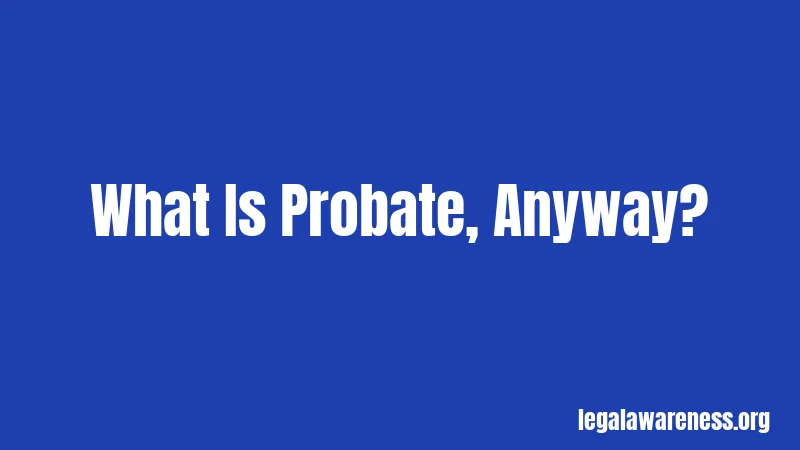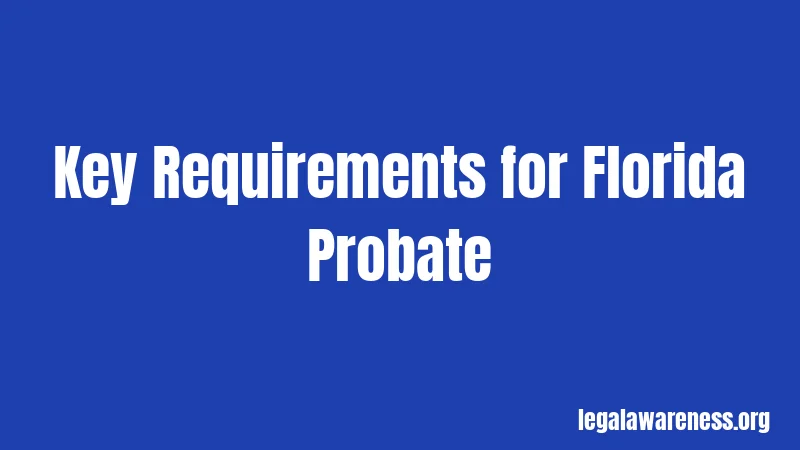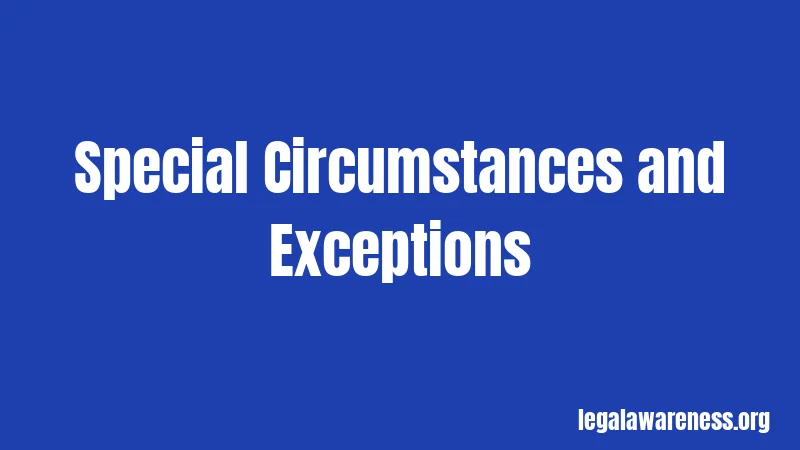Florida Probate Laws (2026): Understanding the Essential Guide
Most people have no idea what probate actually is until they need to handle someone’s estate. Seriously, it’s one of those topics everyone avoids thinking about. But in Florida, understanding probate laws can save your family thousands of dollars and years of stress. Let’s break down exactly what you need to know.
Here’s the reality: when someone dies with property or money in their name, Florida law requires a legal process to transfer those assets. That process is called probate, and the rules are pretty specific. Whether you’re an executor, a beneficiary, or just trying to plan ahead, this guide will help you understand how Florida’s probate system actually works.
What Is Probate Anyway?

Okay, stay with me here. Probate is basically the court process that handles someone’s estate after they die. Think of it like this: when you own property or have money in just your name, nobody else can legally access it once you’re gone. That’s where probate comes in.
The court appoints an executor (or personal representative, if you want to use the official term). That person gathers all the assets, pays any debts and taxes, and then distributes what’s left to the people who are supposed to inherit. Pretty straightforward, right? The thing is, it can take months or even years. And yep, there are fees involved.
Basic Florida Probate Laws
What Probate Actually Covers
Not everything goes through probate. Here’s what does: property that’s only in the deceased person’s name, bank accounts without a named beneficiary, vehicles titled to the individual, and items like jewelry or art. Confused about what doesn’t go through probate? It’s actually not that complicated.
Assets that skip probate include: life insurance with a named beneficiary, retirement accounts like 401(k)s or IRAs, bank accounts that say “payable on death” or are held as joint tenants, and property held in a trust. These transfer directly to whoever is named, completely bypassing the whole court process.
Types of Probate in Florida
Florida gives you different options depending on the situation. Formal administration is the full court process with a judge overseeing everything. This one takes longer but is required in certain situations. You need it if the person left a will that’s being contested, if there are complicated assets, or if there are serious disputes among family members.
Simplified administration is way faster. It’s available when the estate is small or the person died more than three years ago. Instead of months of court proceedings, you can sometimes wrap it up in weeks. This is honestly the version most people hope for, and lots of smaller Florida estates qualify for it.
Creditor’s claims are something most people don’t think about until it’s too late. In Florida, creditors get a chance to claim money owed to them from the estate. If you ignore this, you could end up personally responsible. Don’t skip this step.
Key Requirements for Florida Probate

Filing the Will and Initial Paperwork
Here’s where it starts. If the person left a will, it has to be filed with the Florida probate court in the county where they lived. This needs to happen within a certain timeframe, though Florida is pretty reasonable about timelines. You’ll also need to file a petition for administration, which is basically a formal request to open the probate case.
The personal representative needs to be named by the court. Hold on, this part matters. If someone was named in the will, they usually get the job. But if there’s no will, Florida has a priority list of who gets to be the personal representative. Spouses come first, then adult children, then parents, then siblings. It goes down from there.
Creditor Notification Requirements
This is honestly the part most people miss, and it causes problems later. Florida law requires the personal representative to notify creditors about the person’s death. There’s a specific publication process. You have to publish a notice in a newspaper, send written notices to known creditors, and wait for claims to come in.
The waiting period is important. Creditors get 3 months from the date of notice to file claims against the estate. Okay, pause. Read this carefully. If you distribute money before the creditor period ends and miss a claim, you could personally owe that creditor. This is serious stuff.
Asset Inventory and Accounting
The personal representative has to list all assets, figure out their value, and report everything to the court. This is called the inventory, and it’s official. You need to include property, bank accounts, vehicles, investments, and basically anything of value that belonged to the deceased.
The court wants detailed information. Real estate needs appraisals. Bank accounts need actual statements. Investments need current valuations. This sounds tedious because it is, but it protects everyone. After gathering everything, the executor files an accounting with the court showing where money came from and where it went.
Penalties and What Happens if You Mess Up
Personal Representative Liability
Here’s something that keeps executors up at night: you can be personally liable if you make mistakes. If you distribute money without waiting for creditor claims, you’re on the hook. If you don’t properly value assets and end up short, that’s on you. If you fail to pay taxes or notify beneficiaries, the court can hold you responsible.
Think of it like a traffic ticket, but more serious. It’s not automatic punishment, but you could end up in court defending your actions. In some cases, you might have to pay money out of your own pocket to fix mistakes. This is why a lot of people hire lawyers, honestly.
Missing Deadlines and Timelines
Florida sets specific deadlines for everything in probate. Miss them, and you could face court sanctions. The worst part? Beneficiaries or creditors can file complaints against you. Suddenly you’re defending yourself in court when you were just trying to handle the estate.
The timelines aren’t unreasonable, but they’re real. Inventory has to be filed within 60 days of the initial order. Final accounting usually has to be done within one year. You’ve got 3 months to handle creditor claims from the date you publish notice. These aren’t suggestions.
Tax Implications
Florida doesn’t have state income tax, which is honestly pretty great. But that doesn’t mean taxes disappear. The estate still owes federal estate taxes if it’s large enough. You’ll need to file a final income tax return for the deceased. Some estates owe gift taxes or other federal obligations.
If you ignore these taxes? The IRS gets involved. That’s a whole different level of complicated. This is honestly one area where hiring a professional really pays for itself.
Special Circumstances and Exceptions

Homestead Property Situations
Florida has special rules about homestead property, and they’re actually pretty generous to families. The homestead passes outside of probate in many cases. If the owner had a will leaving it to a spouse or minor children, it can go directly to them without the full probate process.
There’s a homestead tax exemption involved too. After someone dies, their spouse or minor children might qualify for continued homestead exemption on the property. This saves real money on property taxes every year. Make sure the estate handles this properly.
Small Estate Procedures
If the person’s estate is small enough, Florida offers something called “disposition of personal property without administration.” This is basically probate’s easier cousin. You can skip the whole court process if the estate is under $75,000 and you have the right documentation.
Even simpler: if there’s very little property and mostly assets that don’t require probate anyway, sometimes you can handle everything with just paperwork. No court involvement needed. But you have to qualify, and the rules are specific.
Intestate Succession (No Will)
Not everyone leaves a will. When someone dies without one, Florida’s intestacy laws take over. The law has a pretty clear order of who gets what. The surviving spouse gets priority, usually getting a big chunk or everything depending on the situation.
If there’s no surviving spouse, the children split the estate equally. If there are no kids, parents get it. Then siblings. Then more distant relatives. This is literally written into Florida Statute 732.103, so there’s no guessing involved.
How to Handle Your Role as Executor or Beneficiary
What the Personal Representative Needs to Do
If you’re named as the personal representative, here’s your actual job. First, you’ll file the will and petition with the probate court. Then you’ll get approved by the judge. You’ll locate and gather all assets, open an estate bank account, and keep meticulous records of everything you do.
You’ll notify all creditors, beneficiaries, and other interested parties. You’ll pay any bills, debts, or taxes owed. You’ll file required court documents and reports. Finally, once everything’s settled, you’ll distribute the remaining assets to beneficiaries according to the will or Florida law. It’s a checklist, basically.
Honestly, this is the part most people hire an attorney for. Not because it’s impossible to do yourself, but because one mistake can cost you. An attorney-guided process costs money upfront but saves headaches (and potential liability) later.
What Beneficiaries Can Expect
If you’re a beneficiary, understanding probate helps you know what to expect. You’ll get notified about the probate case. You’ll receive information about the estate’s assets and debts. You’ll hear about any creditor claims that come in.
Don’t expect instant payouts. The whole process typically takes 6 months to a year, sometimes longer for complex estates. You can ask the personal representative for updates, and they’re legally required to be somewhat transparent with you. If you think they’re doing something wrong, you can file a complaint with the court.
Practical Steps to Take Right Now
Trust me, this works. Start by gathering important documents if a loved one passes. You’ll need the death certificate, the will, any life insurance policies, bank statements, tax returns, and property deeds. Organize these in one place.
Contact an estate attorney if the estate is anything but tiny. Most offer initial consultations for free or a small fee. That single conversation will answer most of your questions and help you avoid expensive mistakes. Seriously worth the time investment.
Don’t move money around or give things away before talking to someone. Don’t assume beneficiaries can get their inheritance immediately. Don’t ignore creditor notices. And definitely don’t skip the tax stuff.
Frequently Asked Questions
How long does Florida probate actually take? Simple estates with a will can take 6 months to a year. Complex estates with disputes might take 2-3 years or longer. Simplified administration for small estates can wrap up in just a few weeks.
Do I have to go to court for Florida probate? Not always. Simplified administration and small estate procedures require minimal court involvement. Formal administration requires regular court appearances by the personal representative or their attorney.
Can I avoid probate in Florida? Absolutely. You can put property in a trust, name beneficiaries on accounts, hold property as joint tenants, or use payable-on-death designations. These methods transfer assets outside of probate completely.
What’s the cost of probate in Florida? Attorney fees average $1,500 to $5,000+ depending on complexity. Court fees are a few hundred dollars. The personal representative can be paid a percentage of the estate’s value (around 3% is typical). These costs come from the estate before beneficiaries get their share.
What if someone contests the will in Florida? Contesting a will is possible but difficult. You need valid legal grounds, like claiming the deceased wasn’t mentally competent when they signed it, or that someone improperly influenced them. These disputes go through probate court and can take years.
Who decides if the personal representative is doing a good job? Beneficiaries and creditors can file complaints if they think something’s wrong. The probate court judge oversees the whole process. The personal representative has to follow Florida law and the will’s instructions exactly.
Final Thoughts
Probate doesn’t have to be scary. Now you understand the basics: what probate is, who handles it, what timelines matter, and what mistakes to avoid. The biggest thing to remember is that probate is a structured legal process designed to protect everyone involved.
If you’re facing probate, get professional help. An estate attorney will cost money, but a single mistake could cost you way more. If you’re planning ahead, use trusts, beneficiary designations, and other tools to make things easier on your family later.
Keep important documents organized. Make sure your will is clear and legally valid. Update beneficiaries on your accounts. Talk to your family about your wishes. These steps seem simple, but they make probate (or avoiding it) so much easier.
Now you’ve got the essential knowledge. Stay informed, stay organized, and when in doubt, ask a Florida probate attorney. It’s honestly the smartest move you can make.
References
- Florida Statutes Chapter 732: Probate Code (https://www.flsenate.gov/laws/statutes/chapter732)
- Florida Court System: Probate Guide (https://www.flcourts.org/court-help-self-help-services/probate-information)
- The Florida Bar: Probate Section Resources (https://www.floridabar.org/)
- Florida Department of State: Estate Administration Information (https://dos.myflorida.com/)
- LegalZoom: Florida Probate Laws and Process (https://www.legalzoom.com)

a person designates a relative with a p o a – Principal passes away leaves 1 known,… property ………value ?
person holding poa does not allow any to know what happened … how that person passed and what was done with her remains. Did not provide any inf in re to the passing other that he did not want to see any one nor fam and to this day no communication.
the heirs know of one property n executor sold it after principal passing ,, in a us territory (PR) the heirs (3) 1 been the executor & 2 does not know what happened (,buried .cremated ??) that person the ( poa )executor was never heard of or from again.. poa was executed in fla, passing was on 2023 ,fla, will..?? assets..??
just weighing options before considering any commitment….